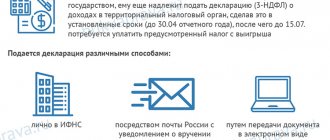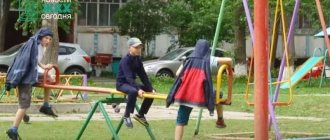Alexey BessonovPracticing Moscow lawyer
Hello. I am a visiting lawyer from the Bessonov and Partners law firm. I specialize in discharging citizens in court.
To expel any person from an apartment without his consent, you will have to GO TO COURT. This is expressly stated in paragraph 1 of Art. 35 LCD and pp. 5 (e) clause 31 of Government Decree No. 713 of July 17, 1995. This is the only way.
If a person who does not live in the apartment and does not pay utilities refuses to check out, ignores this requirement, or communication with him is lost, the owners need to file a claim with the district court. If the court decision is positive, then take it to the passport office and discharge the person. Partial information taken from here.
IMPORTANT INFORMATION : On this page I have written instructions for checking out only an adult (over 18 years old) and only from an apartment that is privately owned. Other articles on the topic - 1) how to discharge a non-resident person from a municipal apartment; 2) how can owners discharge a minor child. 3) how to discharge a child from a municipal apartment. 4) as the owner, discharge his ex-wife and children.
Who cannot be discharged, even if he does not live in the apartment
- The owner will not be able to register his minor child (son or daughter) - clause 14 of the Resolution of the Plenum of the Supreme Court of the Russian Federation dated July 2, 2009 N 14.
For example, Ivan registered his wife in the apartment that he got before marriage. Afterwards they had a daughter. He registered her too. A few years later the couple divorced. As a result, the ex-wife and his minor daughter moved out of the apartment. Oleg will only be able to discharge his ex-wife through the court, but not his child. Judicial practice is as follows: the divorce of parents does not entail the loss of the child’s right to live in an apartment owned by one of them. - Courts are more likely to refuse an owner who wants to sign out his minor grandson or granddaughter.
It doesn’t matter whether the owner registered it himself or whether the child’s parents registered in the apartment did it. There is no official document about this, but the opinion of most courts is this: the owner cannot recognize his minor grandson/granddaughter as a former family member. Although some courts issue orders, they are in the minority. For example, Svetlana owns an apartment. There are two people registered in the apartment - she and her daughter. My daughter had a son and she registered him in her grandmother’s apartment. After some time, the daughter and grandson left the apartment. Most courts believe that Svetlana will not be able to discharge her minor grandson.
THERE IS A WAY OUT - this is to change the owner. After the transaction, the new owner will be able to discharge a non-residing minor child on the basis of clause 2 of Art. 292 of the Civil Code of the Russian Federation. I provided links to the minor’s discharge at the beginning of the article.
If the minor child is not the owner’s relative or grandchild, he will be able to discharge him. For example, the registered child is the owner’s nephew/niece. Or this is the child of a friend, acquaintance.
ADDENDUM: The owner will not be able to discharge a person who has refused privatization if he has not lived in the apartment for less than 3 years. Or if the “refusenik” pays part of the utilities. It makes no difference whether the owner has changed or not. You will find a link to the instructions above.
Our law office "Bessonov and Partners" offers residents of Moscow or the region. We will take on all the possible work - we will draw up a correct statement of claim, collect all the necessary documents and submit them to the court. You will not need to come to court hearings; the office's lawyer will participate in them and will do everything possible to win the case. At the end of the trial, we will bring you a copy of the court decision.
We have been working in the field of court records since 2008 and have won 84% of court cases.
The cost of the service is 60 thousand rubles. For visitors to this site there is a discount of 5% to 10%. To receive it, say that you came from the website “Prozhim.com”. For all questions and for a free consultation, call 8 (495) 642-31-96 (daily from 9:00 to 21:00 Moscow time / only for residents of Moscow and the region).
Special situations
Special situations include cases when the owner of an apartment lives in it alone, and at the same time goes on long business trips or works on a rotational basis. That is, during certain periods he does not actually live in the apartment and does not use utilities.
In such situations, you can also save on paying for services, but in this case, it is not a refusal of services or payment for them that is issued, but a request for recalculation for the period during which the person was actually absent from the apartment.
You can submit a request for recalculation if the person living in the apartment was absent from it for more than 5 (five) days. In this case, the results of the recalculation will be displayed in receipts for subsequent months of payment. That is, you will have to pay for the period of absence, but in the future the payment amounts will be deducted from payments in the next month (or months).
When submitting an application for recalculation, you must also provide documents proving the absence of a person in the apartment during a certain period, namely:
• Certificate of business trip or shift work indicating the deadlines;
• Train, plane or bus tickets (round trip);
• Document confirming temporary residence in another place.
If a person was absent from the apartment due to inpatient or sanatorium treatment, it is necessary to provide a certificate from the hospital or sanatorium along with the application for recalculation.
If the family went on a visit or vacation for more than 5 days, you can also submit an application for recalculation, attaching tickets and other evidence of absence.
What residential address should be indicated in documents?
People often ask me, “I don’t know where the person who needs to be discharged lives now. What address should I indicate in the claim then? What if it is known? Should I indicate the actual one?
In the statement of claim, it is enough to indicate the defendant’s residential address, i.e. apartment from which he needs to be discharged. According to the logic of the courts, the defendant’s place of residence is his registration address - paragraph 63 of the Resolution of the Plenum of the Supreme Court of June 23, 2015 N25. The plaintiff is not required to know where the defendant actually lives.
As a result, all subpoenas will be sent to the defendant’s registered address - Art. 113 Code of Civil Procedure of the Russian Federation. If he does not receive them (because he does not live there), the court will still consider him notified. Receiving important correspondence is a citizen's responsibility, so everything is legal. If he does not appear in court, the case will still be considered without him (in absentia) - clause 4 of Art. 167 Code of Civil Procedure of the Russian Federation. This benefits the plaintiffs because the defendant will not be able to protect their interests.
Spelling pronouns with the particle no one
If a sentence uses the conjunction neither...nor in conjunction with the pronoun who, and this conjunction can be removed without violating the meaning of the statement, then “neither who” should be written separately. In this case, “no one” is a pronoun with the particle neither included in the conjunction. For example: “Marina didn’t see anyone flashing on the deck or anyone jumping overboard.” In this example, it is correct to write “no one” separately, because by omitting the conjunction, we get essentially the same phrase in meaning: “Marina did not see who flashed on the deck, who jumped overboard.”
Example sentences
- Arthur didn't know who did it or why it was done.
- Neither my uncle nor anyone else could cancel the meeting.
- Tanya didn’t know who responded to her call, or who rushed to her aid!
Stage No. 2 - Go to court
- Submit a statement of claim and other documents to the court.
I remind you once again that only one of the owners can submit an application and participate in the trial, but not all of them have to. Whoever appears in the statement of claim as a plaintiff is the one who files. The claim can also be filed by a hired lawyer/lawyer under a power of attorney. This can be done immediately after visiting the post office (the above stage).In practice, the trial lasts from 2.5 to 5 months. The law specifies a maximum of 2 months - clause 1 of Art. 154 Code of Civil Procedure of the Russian Federation.
You need to go to court at the location of the apartment - Art. 24 and art. 28 Code of Civil Procedure of the Russian Federation. After all, the defendant is registered in it. In large cities these are district courts, in small towns and villages - city courts.
If one of the plaintiff owners is under 14 years old, he does not need to come to court. Instead, there must be one of the parents/guardians - Art. 28 Civil Code of the Russian Federation. If he is from 14 to 18 years old, he must also be present together with one of the parents/guardians - Art. 26 Civil Code of the Russian Federation.
First, you need to get the court details from the court office to pay the state fee. Usually they are at the information stand. Nowadays they rarely give you a receipt. The state duty is 300 rubles (clause 3, clause 1, article 333.19 of the Tax Code of the Russian Federation). It is better to pay it at some bank so that they issue a check in return.
After payment, you submit to the court reception/expedition: 1. Copies of the check and inventory for sending the eviction notice to the defendant (not always required) 2. Prepared documents for going to court (second stage); 3. Copies of receipts and inventories for sending documents to the defendant and a third party; 4. Original receipt for payment of state duty.
In all copies of the statement of claim, the court employee will put a stamp with the date of acceptance and the entry number. One copy will be returned to each plaintiff.
Sample of a stamp confirming the acceptance of a statement of claim
- The judge will consider the application and set a date for the preliminary hearing..
Within 8 - 10 days from the date of filing the documents, the judge will consider the statement of claim and decide what to do with it next - accept, reject or leave without progress. Although according to the law it must be done within 5 working days - clause 1 of Art. 133 Code of Civil Procedure of the Russian Federation.If accepted, the judge will set a date for a preliminary hearing. It will arrive in approximately 15 to 35 days, depending on the judge’s workload. The court will send notices by registered mail to plaintiffs, defendants and third parties about the time and place of the preliminary hearing - clause 2 of Art. 113 Code of Civil Procedure of the Russian Federation.
I do not advise you to wait to receive the summons, but a week after filing the claim, check with the appointed judge about the date of the preliminary hearing. Typically, every judge has Mondays and Thursdays as days for receiving citizens. The name of the judge can be asked in the office/expedition.
- Conducting a preliminary meeting.
The preliminary hearing is preparation for the trial - Art. 152 Code of Civil Procedure of the Russian Federation. In it, the judge listens to the parties' demands and reviews the submitted documents. If there are not enough documents, the judge will indicate which ones need to be submitted.After this, a court date will be set. It will be held 15 - 35 days after the preliminary one. The defendant and third parties are again sent subpoenas, but this time for a court hearing.
- Conducting a court hearing.
At the beginning of the court hearing, the judge will announce the requirements for the claim. Then he will listen to each side, their additions, and ask clarifying questions.What should plaintiffs do? It is necessary to inform that their rights to use the apartment are violated by the defendant’s registration. I described above which articles to rely on. It all depends on who needs to be discharged.
There may be several court hearings. By law, the defendant must be notified twice. Therefore, if he does not come to the first meeting, a second one will be scheduled. It will be 10 - 30 days after the first one. If he doesn’t come to the second meeting, the judge will consider the case without his participation - Art. 167 and art. 233 Code of Civil Procedure of the Russian Federation.
- The court's decision is announced .
After the judge considers all the demands and arguments of the parties, he will make and announce his decision - Art. 193 Code of Civil Procedure of the Russian Federation. If the defendant was present at the court hearings, the decision will be in person. If you were not present, either in person or in absentia. This is for the judge's consideration. - Pick up a copy of the court decision in final form from the court office. You can find out about its readiness by calling the office. The court will send a copy of the decision to the defendant by registered mail to the address from which it was written.
Do I need to pay rent for an apartment if no one lives in it - 2021
Water consumption is also calculated according to the social norm, if readings are not transmitted. But there are apartments that do not have meters. The owners themselves may not want this, or it may not be technically possible. Water consumption in Moscow and the region is estimated at 7.6 cubic meters. m per registered person (3.6 cubic meters of hot water and 4 cubic meters of cold water).
Utility bills are paid monthly by the 10th day of the month following the month in which the payment was made. So, for May 2021 it will be necessary to pay before June 10, 2021.
You need to pay the entire amount that is stated in the payment document or in the personal account of the management company or settlement center. If the owner does not agree with the charges, since no one is registered or living in the apartment, he needs to apply for recalculation.
If the apartment has an IPU for water and other resources, then it is necessary to transmit the readings monthly. Even if there is no flow, the readings must be transmitted. Otherwise, the amount will be calculated according to the social norm for 1 person. A month can accumulate up to 1000 “extra” rubles.
To recalculate, you need to contact the company that supplies this or that resource. For example, to avoid paying for water, visit the Vodokanal branch. But now management companies or HOAs are intermediaries between residents and resource providers, so it is necessary to submit a package of documents either to the management company or to the accounting department of the HOA. In large cities there are still unified settlement centers that also accept applications for recalculation.
If the owner of a residential premises believes that the rent is calculated incorrectly due to the fact that no one is registered or living in the apartment, he has the right to submit documents for recalculation.
Situations may be different:
- absence of residents for more than 5 days;
- no one is registered, and charges are made for several people;
- IPU readings are submitted regularly, and calculations are made according to the social norm of consumption of a particular resource.
You need to prepare a package of documents, which includes:
- application addressed to the head of the management company or HOA. If there is an appeal directly to the resource supplier, then the application is written to the head of this organization;
- an extract from the house register, which will indicate the absence of registered people from a certain calendar date;
- passport of the owner of the premises;
- a document confirming his property right;
- an extract at the address where the owner and his family members are registered and live;
- certificate of family composition.
How do you pay for utilities if a person is registered but does not live?
The basis for the trial will be Article 61, Part 2 of the Code of Civil Procedure of the Russian Federation. The court may make a decision in which it will be recognized that the citizens registered in the apartment have lost their rights, and also demand that the debt on utility bills be paid forcibly. To do this, you will need to provide a receipt, from which it will be clear that all payments were made by the owner of the property. You should consult with a professional housing attorney before pursuing legal proceedings.
We recommend reading: Petition to suspend the case pending consideration of another case
When “nobody” is written (continuously, with the letter “i”)
In 99.9% of cases, it is the word with the continuous spelling “ nobody ” that is used.
How to recognize: 1. The stress falls on the second syllable (on the letter “o” not a single person can be substituted instead .
Examples
one to the cleanup again !
I understand you better than anyone .
anyone seen my purse?
Why anyone come to class on time?
Nobody remembered the correct answer.
When a teacher writes on the board, one understands what he is muttering there.
On the way home I didn’t meet anyone I knew.
The back was white, but no one told me about it.
Who are you? - Nobody !
I'm the boss here, and you're nobody !
anyone here .
Why anyone but me wash the dishes?
When I warned, no one wanted to listen to me!
Understand that according to a fictitious agreement, one owes anyone anything!
How did no one notice the elephant in the city center?
Nobody saw you - I think no one except you.
No one and nothing can stop me!










